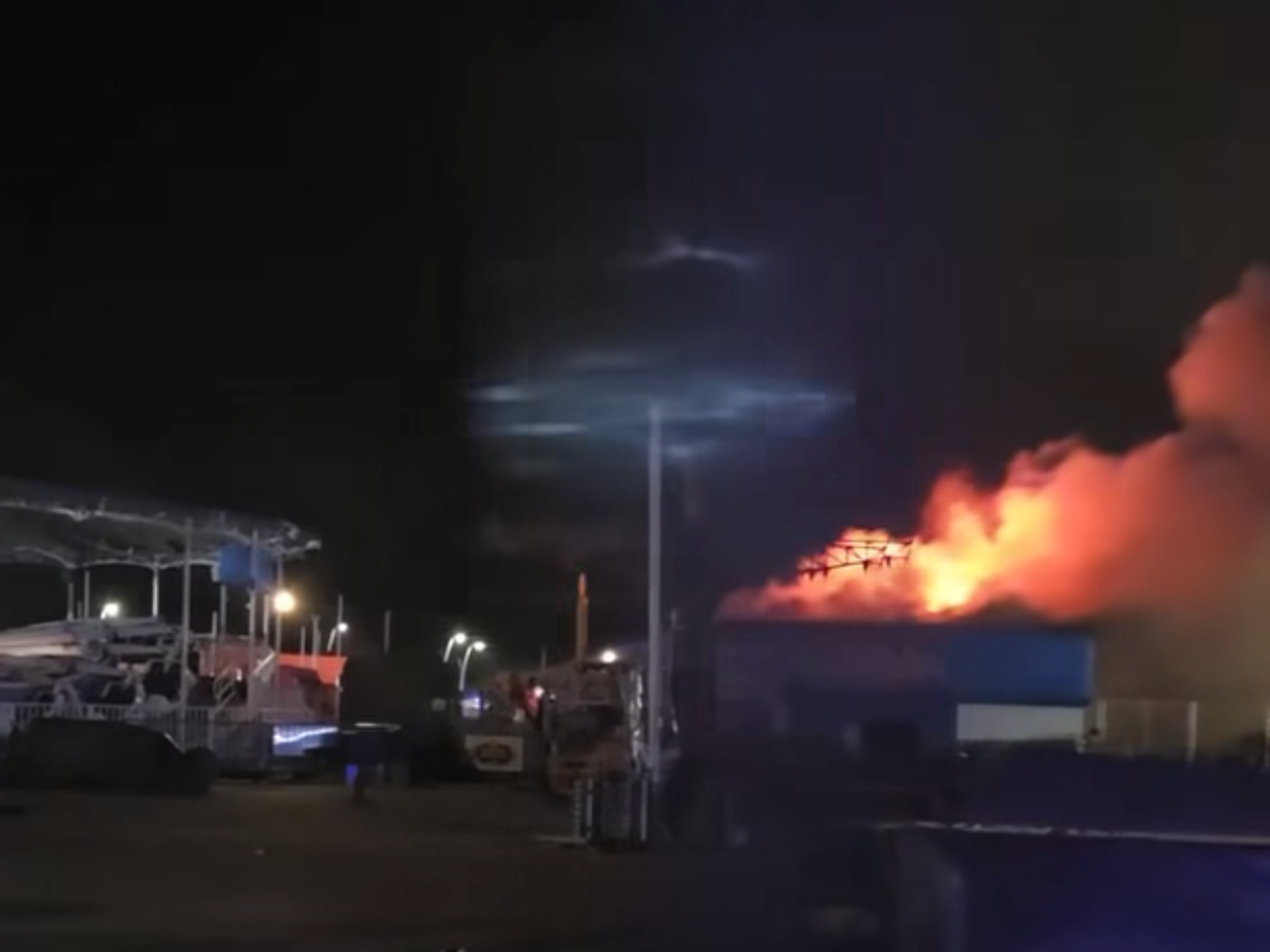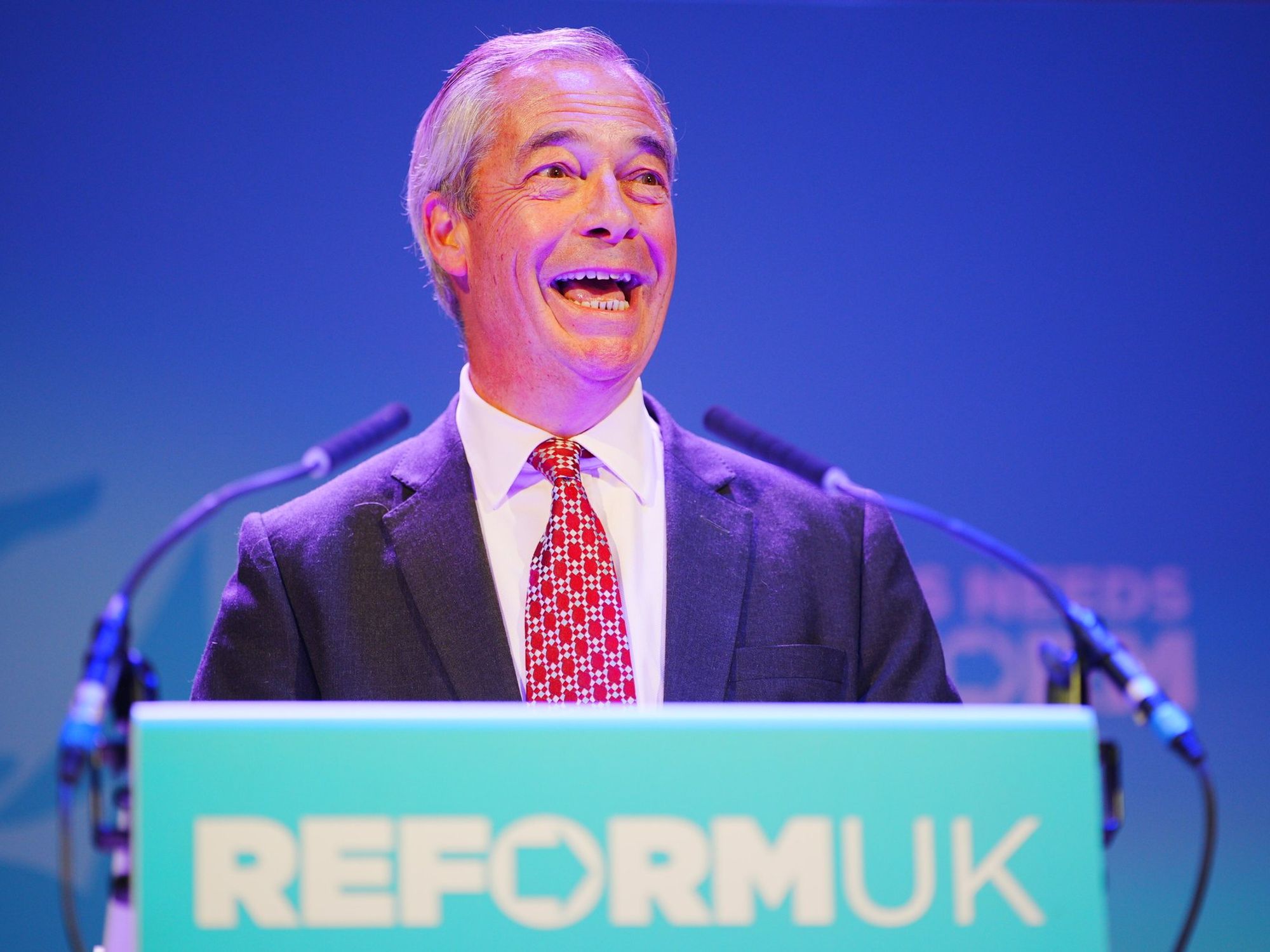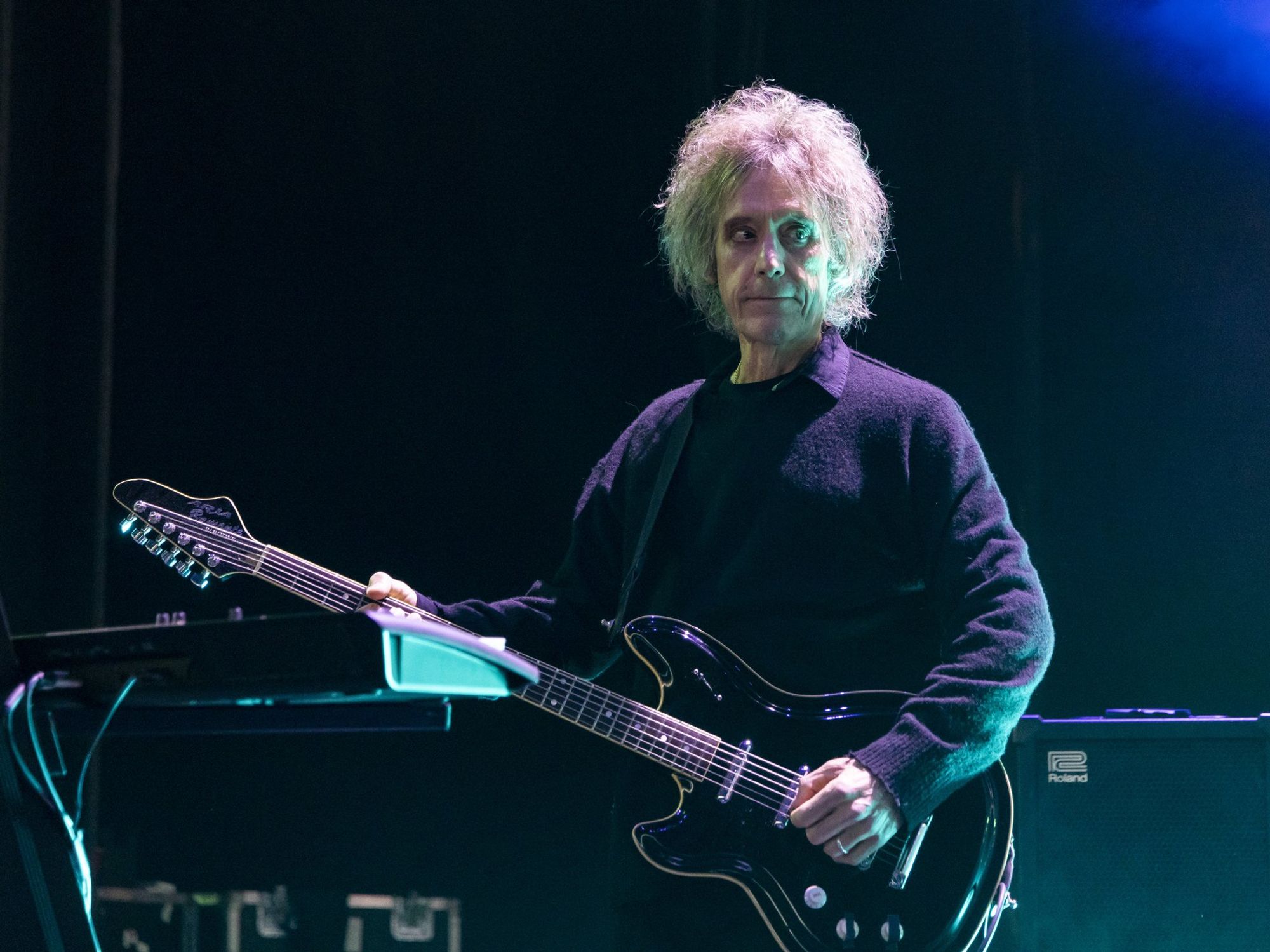SNAP POLL: Should pay-per-mile car tax be used to fill fuel duty black hole? YOUR VERDICT
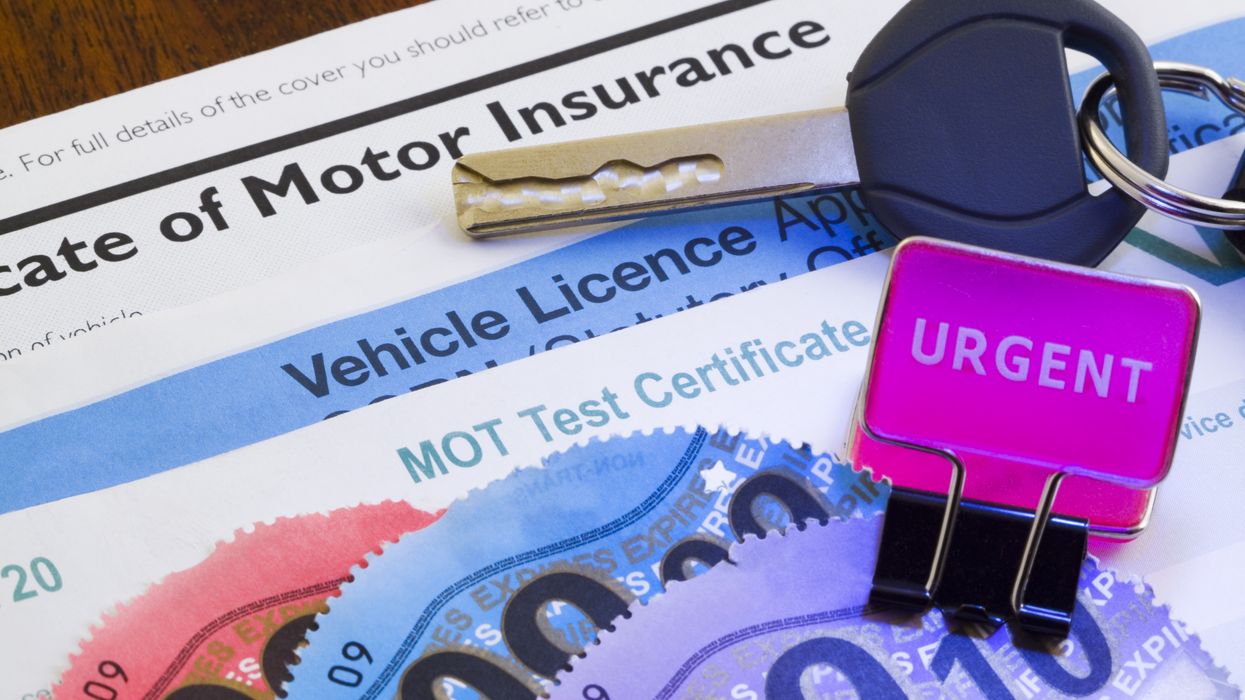
Pay-per-mile car tax could replace fuel duty, it's been suggested
|GETTY
A motoring expert has suggested "replacing fuel duty with a pay-per-mile system" as soon as possible
Don't Miss
Most Read
Latest
New tax measures have been branded the only "way forward" to help alleviate pressure on the £35billion fuel duty black hole.
The rise of electric cars, which are currently taxed on a different level, is set to prompt a multi-billion pound drop in Vehicle Excise Duty (VED) revenue.
Some experts have suggested a new pay-per-mile tax scheme should be implemented "as soon as possible" to plug the gap.
Simon Williams, head of road policy at the RAC said: “As more and more EVs come onto the roads the Government will need to tax drivers differently.
"We think replacing fuel duty with a pay-per-mile system as soon as possible is the way forward as then the only tax levied on fuel would be VAT. This would give retailers nowhere to hide.”
However, critics have opposed the introduction of a pay-per-mile car tax system.
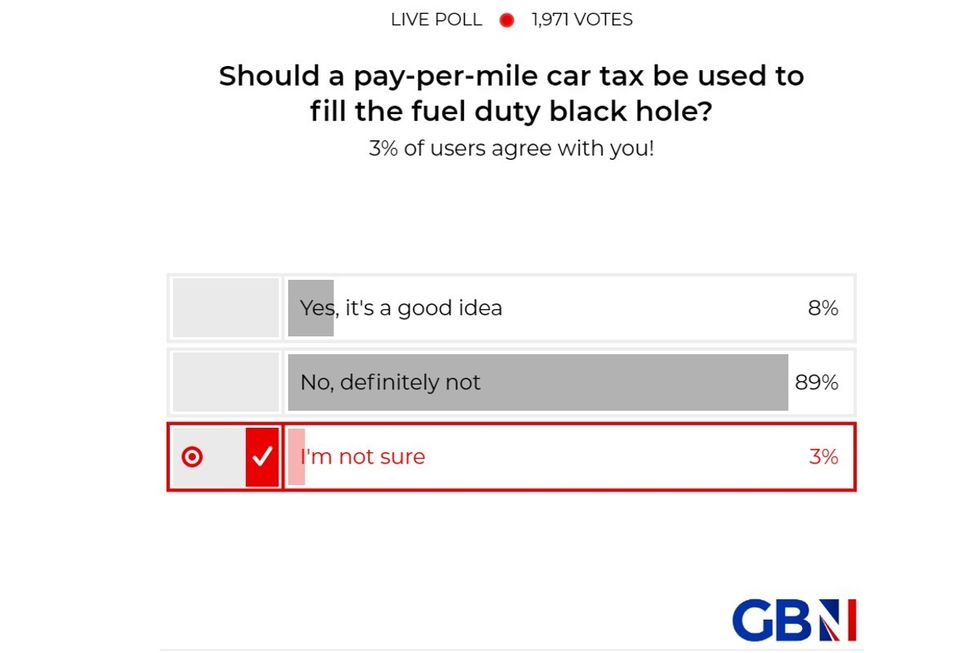
SNAP POLL: Should pay-per-mile car tax be used to fill fuel duty black hole? YOUR VERDICT
|GB News
MORE FROM GBN MEMBERSHIP:
- 'Labour i
s stepping up its war on motorists and it's going to hit plumbers, electricians and delivery drivers' - Electric car chargers need to roll out faster by cutting through 'bureaucratic' hurdles
- HAVE YOUR SAY - Is the UK braced for Net Zero? Comment now
Former Conservative MP Kevin Foster, who previously served as Minister of State for Transport, said "For the millions who get out of bed early in the morning to hit the road, whilst others still have their bedroom curtains closed, it would be another tax burden.
"Those required to go to work during the lockdowns, who were hailed as 'key workers', now face being taxed for the very need to do so."
In the exclusive poll for GB News membership readers, an overwhelming majority (89 per cent) of the 1,971 voters thought it was not a good idea to use a pay-per-mile car tax to fill the fuel duty black hole, while just eight per cent thought it was. Three per cent said they did not know.





